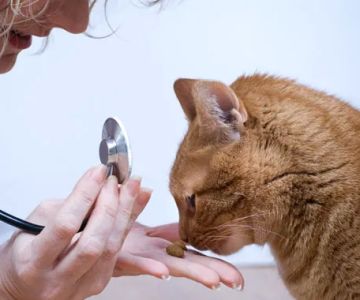Key Skills Needed to Become a Veterinarian: A Complete Guide
- 1. Strong Medical Knowledge
- 2. Empathy and Compassion
- 3. Excellent Communication Skills
- 4. Problem-Solving and Critical Thinking
- 5. Manual Dexterity and Physical Stamina
- 6. Strong Work Ethic
- 7. Attention to Detail
1. Strong Medical Knowledge
Becoming a veterinarian requires a deep understanding of animal anatomy, diseases, and medical treatments. During my years in veterinary school, I spent countless hours studying the complex biological systems of various animals. The ability to diagnose and treat injuries or illnesses is essential, as veterinarians need to make informed decisions quickly to provide the best care.
2. Empathy and Compassion
Working with animals and their owners can be an emotional experience, and it's vital for a veterinarian to show empathy. I have found that a strong sense of compassion is just as important as technical expertise. Whether it’s reassuring a worried pet owner or providing comfort to an injured animal, empathy is a core skill that builds trust with clients and patients alike.
3. Excellent Communication Skills
Veterinarians must effectively communicate with pet owners, staff, and other medical professionals. Over the years, I’ve realized how important it is to explain diagnoses and treatments in a way that’s easy for owners to understand. Good communication also means being a good listener, allowing pet owners to voice concerns and ask questions about their pets' health.
4. Problem-Solving and Critical Thinking
Veterinary practice involves making decisions on the spot, often with limited information. I recall a time when an animal came in with symptoms that were not immediately clear. My ability to think critically and logically helped me narrow down the potential causes and make the correct diagnosis. This skill is crucial for all veterinarians, as every day presents new challenges and situations that require swift and thoughtful decisions.
5. Manual Dexterity and Physical Stamina
Performing surgeries, administering injections, and conducting physical exams requires excellent manual dexterity. As a veterinarian, I often find myself working in tight spaces or dealing with animals that don’t cooperate. The ability to maintain steady hands and stay physically fit can make a huge difference in the quality of care I provide to my patients.
6. Strong Work Ethic
Veterinarians often work long, irregular hours. Whether you're on call or dealing with a sudden emergency, a strong work ethic is essential for maintaining high standards in patient care. I have learned the importance of being diligent and dedicated, even during stressful or late-night shifts. This perseverance allows me to give every animal the attention they deserve.
7. Attention to Detail
Veterinary medicine requires a keen eye for detail. A small sign or symptom that seems insignificant could indicate a serious health issue. I always make it a point to closely observe animals during exams and keep detailed records of their health history. This attention to detail has often led to early diagnoses and better treatment outcomes for my patients.
If you are considering a career as a veterinarian, these skills are just the beginning. The veterinary profession is challenging but incredibly rewarding. If you're looking for resources or training to start your journey in veterinary medicine, be sure to check out our offerings at Scent Snob for tips on professional growth and useful career insights.











